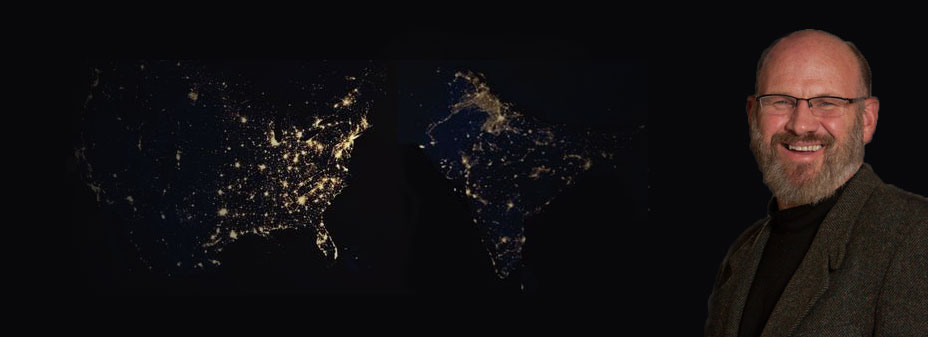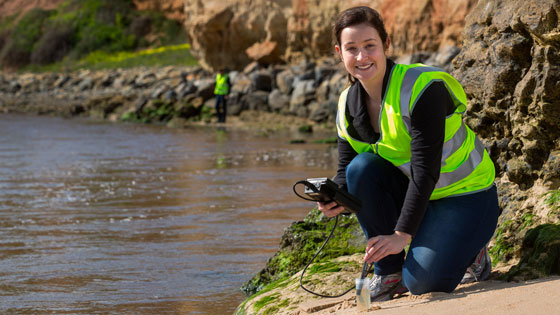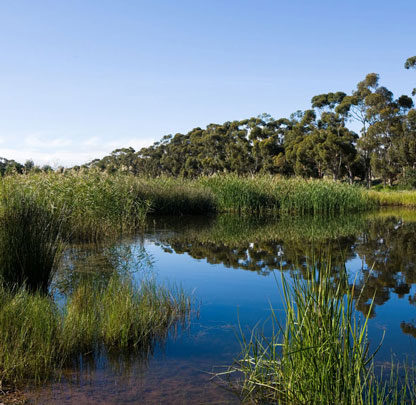
Professor Paul Sutton, Professor of Environmental Sciences, University of South Australia
Professor Paul Sutton and his team at University of South Australia are providing alternative ways of valuing nature in our quest for human wellbeing and quality of life, using valuable data and new human activity maps.
By developing a system to monetise the value of natural ecosystem functions, Prof Sutton and other research colleagues have determined that ecosystem services are worth at least twice that of the whole global market economy as valued by economists. If we harm these services then the costs to human health, wealth and wellbeing can be colossal.
The research asks us to reflect on our current economic models and business goals, and to try looking at things through the lens of ecological economics:
Prof Sutton’s interest in ecological economics began with his love of maps, as he sought to identify how we might map human population and behaviour with greater degrees of accuracy at different scales – countries, cities, towns etc., and include information on land and environmental features. While conducting his PhD research in the late 1990’s, he came across night-time satellite imagery data which was being collected by US military satellites for navigating around dangerous weather. He was able to use this data to investigate the spatial distribution of night-time lights across the world, and link those to human economic activity and population distributions.
Prof Sutton discovered the night-time light maps provide a useful proxy measure for a large array of things. In particular they provide an excellent map of money, energy consumption, and CO2 emissions – the brighter and closer the lights, the more the world’s energy resources are being consumed. For example, as indicated in the photo, India’s population is four times greater than the US, yet India’s energy consumption is significantly less.
Prof Sutton believes there is plenty of evidence that environmental conditions across the world, both on land and in marine and fresh water systems, are worsening due to man-made climate changes. For example, the world’s bee populations are under threat due to pesticides and other human-induced factors; wetlands are being destroyed in many coastal areas; and deforestation is occurring at an unprecedented scale around the world with a range of catastrophic results for species extinction, loss of biodiversity, and increased threats to human life from increased floods and landslides.
“Taking into account the value of ecosystem services in our current economic and financial models will help us to challenge the current economic paradigm, explore new ways of valuing human activity and the environment, and adopt different approaches for a sustainable future,” he says.
Prof Sutton is a man on a mission - to get our community, law-makers and politicians to better value and protect the natural world so that human life on this earth has a sustainable and desirable future. He serves as an expert on the United Nations Global Assessment GEO 6 and provides evidence-based advice and commentary on local, national and international environmental and economic issues to government, lawyers and other policy makers.
We need to harness our cleverness as humans now more than ever to face up to this enormous challenge of our time. You can help support this research.

100% of your gift will go directly to support environmental research at UniSA - there are no administration fees, no overheads and no hidden costs.
We cannot solve issues of water scarcity or depleting natural resources without your investment in research today. You can equip our bright minds to find the solutions for mankind's future challenges.
